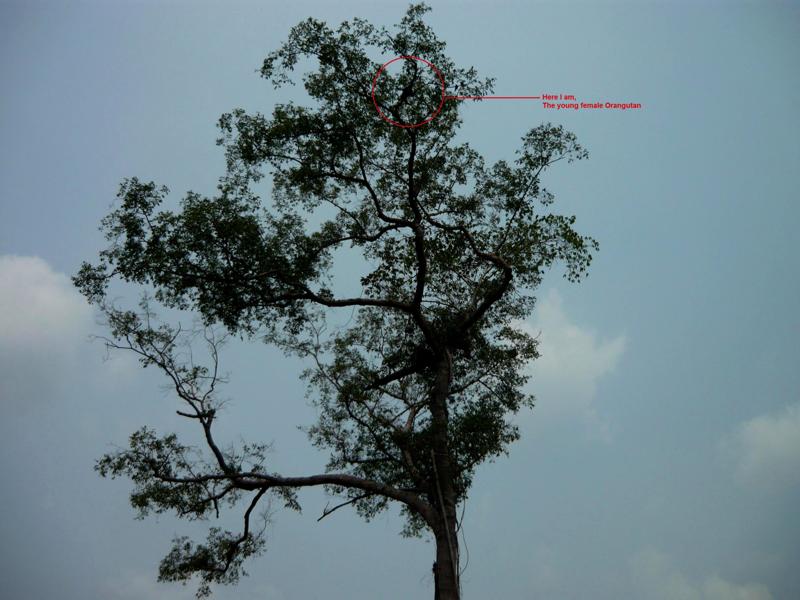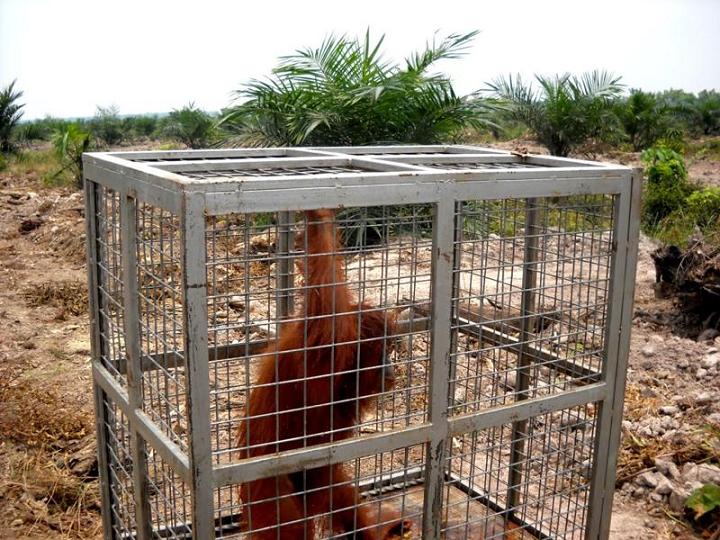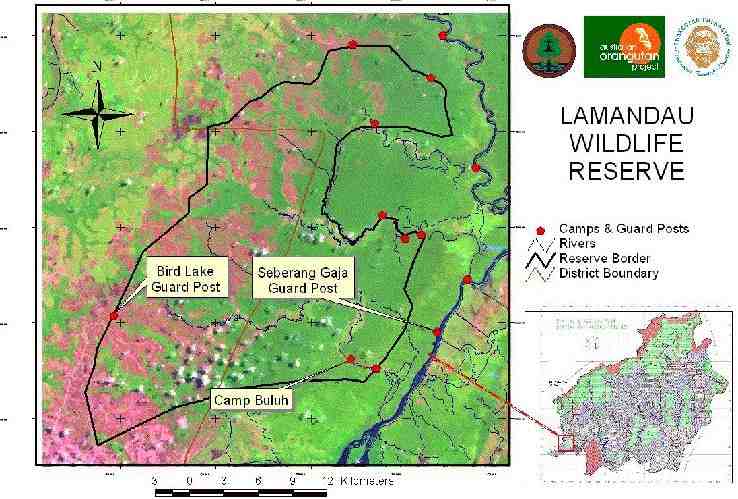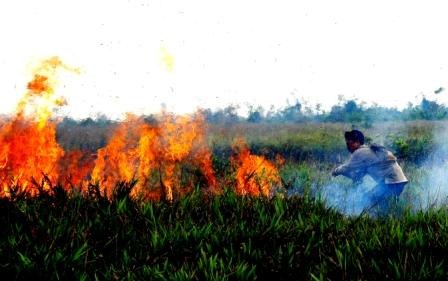Habitat loss is the single biggest threat to orangutans and their tropical forest environment. In under 40 years it’s estimated that almost 40% of Borneo’s original forest cover has been lost due to increased plantations, forest fires, mining, and logging. 80% of orangutans live outside of protected areas which means there are thousands of orangutans at risk due to their habitat being encroached upon and lost.
At the Orangutan Foundation we help safeguard protected orangutan habitats, the Lamandau Wildlife Reserve and Tanjung Puting National Park, however the need to support orangutans outside of these safe havens remains paramount. We do this is by engaging with local government, private sector and communities to share knowledge about orangutans and emphasise the importance of preserving their tropical forest habitats. The Foundation holds a number of workshops and training sessions for the survival of orangutans outside of protected areas. These have included:
Biodiveristy and Socio-Economic Survey Training
There’s nothing more important than field practice. This week in collaboration with the Arcus Foundation and local NGO Yayorin, we held technical training sessions to help local people monitor orangutan populations within oil-palm concessions, logging concessions, and community lands. During the two-day course, participants practiced GPS, socio-economic assessments, and learnt survey techniques for vegetation, orangutans and other species. Using these techniques can help improve our understanding of populations and demographics in regions which are more threatened by habitat loss.
Human-Wildlife Conflict Mitigation Workshops
The aim of these workshops is to find ways in which local communities can co-exist safely with wildlife species whilst still maintaining a sustainable livelihood. With the help of partners TOP, we hope improved knowledge about orangutans and their forest habitats will help landowners avoid human-wildlife conflict, and lead to fewer rescues and translocations of orangutans in plantations and community lands.
Fire Prevention Workshops
Fires are a continuous threat during each dry season. The Foundation takes seriously the importance of outreach to all relevant stakeholders on the dangers of starting fires which destroy orangutan and wildlife habitat.
Fire-Fighting Training
The Foundation together with the government agencies, hold fire-fighting training throughout the year. Here groups are taught fire prevention and fire-fighting techniques, using GPS to help record outbreaks of fire so that they can be extinguished more rapidly.
By engaging with local stakeholders in sustainable land management decisions, we are giving a future for orangutans outside of protected conservation areas.
Donate to the Orangutan Foundation today to help us continue this vital work.
























